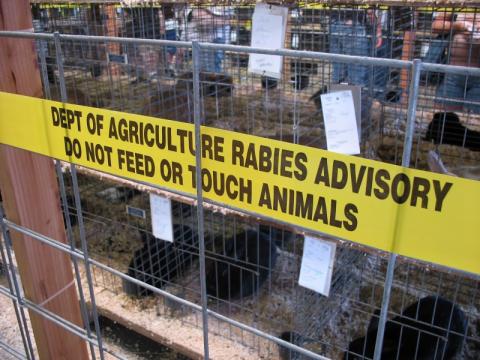Public Health Agency advises on rabies risk of animal bites in Turkey

Following a number of returning holiday makers from Turkey having to be given anti-rabies treatment, the Public Health Agency has issued a warning to avoid animal bites when travelling abroad.
Dr. Richard Smithson, Consultant in Communicable Disease Control with the PHA said: “In the past few weeks we have had several people returning from Turkey who have been bitten by animals and have had to be given anti-rabies treatment. This treatment is not pleasant as it consists of a series of injections. However, it is essential as rabies is always fatal and once it starts to develop it is too late to start treatment.”
Rabies is spread through animal saliva, usually through a bite but it can also be spread through a scratch or by an animal licking a cut or wound, or saliva getting into the eyes, mouth or nose. It cannot be transmitted through intact skin. It is commonly spread by dogs but can be spread by other mammals including cats and monkeys. You cannot tell if an animal has the disease as they may appear well.
Dr. Smithson continued: “The message is simple: stay away from domestic and wild animals when abroad. It doesn’t matter how cute they look. If they bite you, you are going to end up spending a lot of time getting sorted out in a hospital casualty department.”
Dr Smithson concluded by saying: “People may be used to thinking about rabies when they go to more exotic locations like Asia and Africa but it can be present closer to home, not just in Turkey but in some eastern European countries as well for example. So it is always best to play it safe and avoid animals, especially strays.”
Further information on rabies is available at:
http://www.hpa.org.uk/Topics/InfectiousDiseases/InfectionsAZ/Rabies/
ENDS
For further information:
PHA Press Office on 028 9031 1611.
Notes to the editor
1. There are a number of ways to protect against rabies;
• Avoid contact with stray animals
• If someone is bitten or scratched and the skin is broken it is important that they seek urgent medical attention – whilst still on holiday. Most of the cases we have seen recently had been started on treatment whilst still in Turkey.
• Immediate first aid that the person can carry out includes washing any saliva off with soap and water and irrigating the wound with iodine solution or alcohol if available.
2. The increase in cases here may reflect reports in the Turkish press of an increase in rabies in animals there and the greater awareness of the illness in Turkey which is resulting in holiday makers who present with a bite to medical services in Turkey being advised that they need anti-rabies treatment.
